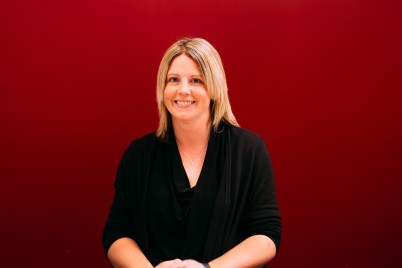The Health Research Council of New Zealand (HRC) has recognised two research teams at the Royal Society Te Apārangi’s Research Honours ceremony in Auckland this evening, one for their outstanding contribution to transforming brain injury management in clinical practice, and the other for their community-led research responding directly to the priorities of whānau across areas such as housing, healing and climate resilience.
HRC Director of Investments and Co-Chief Executive (acting) Mr Stacey Pene says both research teams have worked closely with health providers and community groups operating at the coalface to develop practical, real-world resources that are helping improve health outcomes for New Zealanders.
“Their research consistently places the patient-whānau experience front and centre, which has made the evidence they’ve generated and the health interventions they’ve implemented all the more effective and impactful,” says Mr Pene.
The HRC awarded its second joint Beaven Medal1 to Professor Alice Theadom and the Brain Injury Screening Tool Development Group from Auckland University of Technology for developing a free clinical tool to help clinicians identify people aged 8 years or over who are at risk of a poor recovery following a mild traumatic brain injury.
Of some 36,000 brain injuries that occur in New Zealand each year, about 35,000 are mild traumatic brain injuries, including concussion, mostly caused by everyday slips, trips and falls.
As part of their research, the Brain Injury Screening Tool Development Group, led by Professor Theadom, found that if people did not receive the right treatment for these injuries, some experienced life-changing problems in the long term that severely affected things like their relationships and ability to work.
“We quickly realised that one of the main issues was that clinicians were assessing mild traumatic brain injuries differently. It was potluck what advice a patient got depending on who they went to see. Many clinicians weren’t confident in where or how to refer people for treatment and the health system often relied on a patient with an injury to fight to get help, which many found too much to deal with on top of their injury,” says Professor Theadom.
By identifying children and adults at risk of a poor recovery and facilitating referral to ACC-funded concussion services early, the screening tool, which is now in use in primary care and hospital services throughout New Zealand, has significantly improved patient care pathways.
“Clinicians are now much more confident and consistent when assessing and managing patients with mild traumatic brain injury, and patients are receiving care more quickly and effectively,” says Professor Theadom.
Reducing the time people wait for their first specialist appointment is a key priority for the health system. Since this tool was introduced, the time it takes for a patient to get their first appointment at a concussion service following their first medical presentation has reduced significantly, from 55 days to 17 days, while the proportion of people receiving follow up care in accordance with international guidelines has increased from 36 percent to 51 percent. The tool is also recommended for use in New Zealand’s latest clinical guidelines for managing mild traumatic brain injuries.
“About half of people with a mild traumatic brain injury will recover naturally – and most recovery happens in the first ten days,” says Professor Theadom.
“With this screening tool, we’re shifting the dialogue from ‘here are the red flags to look out for – come back to hospital if you get any of these’ to a much more positive, reassuring message of ‘here’s what to do to aid your recovery, and if you have these risk factors, you’re going to get referred to this person who will give you a call in a couple of weeks.”
The HRC also awarded its Te Tohu Rapuora Medal for outstanding Māori health leadership, excellence and contribution to Paora Moyle, KSO, and the team at Te Whāriki Manawāhine o Hauraki, an independent whānau refuge that has been servicing diverse communities across the Hauraki region for 40 years.
With funding support from the HRC, and strategic vision from the Te Whāriki Board, social worker and researcher Paora Moyle led the development of Te Whāriki’s kaupapa Māori research unit, which centres on gathering the lived experiences of wāhine Māori, takatāpui, gang whānau, and survivors of harm in state care.
The dedicated work of the Te Whāriki team in the community supports innovative, inclusive research using original methods such as waha pikitia (visual storytelling) that enables voices to be foregrounded.
Their landmark ‘Hauraki Whānau Voices’ research programme has directly informed Te Whāriki’s housing-health initiatives, including the He Whare, He Taonga study documenting the relationship between housing vulnerability and family violence for wāhine Māori in Hauraki, and their relocatable housing initiative delivering 20 two-bedroom cabins to isolated communities affected by Cyclone Gabrielle.
Paora says they are immensely proud of the research Te Whāriki has produced, which has considerably advanced Māori health knowledge and influenced social policy development and community projects throughout New Zealand.
“We serve whānau, they inform us. Our job is to make sure their voices are heard. And our programmes are making a real difference; not because we’re miracle workers, but because it’s wāhine who largely bear the burden of violence, who live on the margins of the margins, who want to interrupt the intergenerational trauma so that it no longer impacts their mokopuna,” they say.
“The Te Tohu Rapuora Medal is not just an acknowledgement of our research contributions, but also of the courage of our wāhine and whānau who have shared their experiences to create positive change for all.”
1This is the second joint Beaven Medal to be awarded for 2025. The first joint Beaven Medal was awarded to Professor Ben Wheeler, Associate Professor Martin de Bock and team from the University of Otago at the Royal Society Te Apārangi’s Research Honours event in Christchurch on 28 October 2025.
